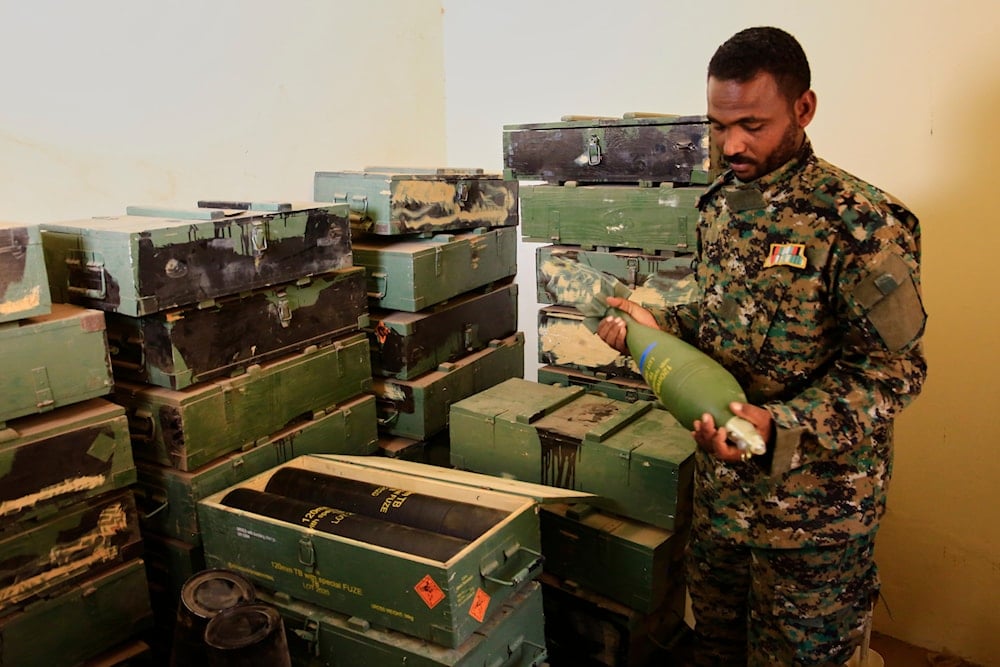Sudan paramilitaries launch first attack on de facto capital: Army
The Rapid Support Forces carried out their first drone strike on Port Sudan, targeting key military and civilian sites in a major escalation of the war.
-

Sudanese army officers inspect a recently discovered weapons storage site belonging to the paramilitary Rapid Support Forces (RSF) in Khartoum, Sudan, on May 3, 2025. (AP)
Sudanese paramilitaries launched their first attack on Port Sudan on Sunday, marking a significant escalation in the Sudan civil war. The Rapid Support Forces (RSF) used suicide drones to strike targets in the city, which has served as the seat of the army-aligned government since the war began two years ago.
According to a statement from army spokesperson Nabil Abdullah, the RSF "targeted Osman Digna Air Base, a goods warehouse and some civilian facilities in the city of Port Sudan." The attack caused limited damage and no casualties, although smoke was seen rising from the area near Port Sudan’s airport.
The RSF has ramped up the frequency and reach of drone attacks on army-controlled regions since losing much of Khartoum in March. The latest strikes on Port Sudan, a symbolic and logistical stronghold for the regular army, highlight a dramatic shift in RSF tactics.
Just a day earlier, a drone attack was reported in Kassala, a city located approximately 400 kilometers from RSF-held territory, marking another rare move into army-controlled eastern Sudan.
Port Sudan: Former safe haven now under threat
Port Sudan has largely been spared from violence since the war's onset. It became the de facto capital for the army-aligned government after officials relocated from Khartoum, as the city also hosts offices for several UN agencies and has served as a refuge for hundreds of thousands of people displaced by the fighting.
Sunday's RSF attack on Port Sudan shatters the perception of the city as a safe haven and raises concerns about the vulnerability of humanitarian and governmental operations based there.
Since April 2023, the conflict has pitted the regular army, led by Sudan's de facto leader General Abdel Fattah al-Burhan, against the paramilitary RSF, headed by Mohamed Hamdan Daglo, also known as Hemeti. The brutal power struggle has killed tens of thousands and displaced over 13 million people.
Moreover, the army maintains control over Sudan's central, northern, and eastern regions, including Port Sudan, while the RSF dominates most of the vast Darfur region and parts of the south.
Sudan’s fragmented frontlines: A fractured nation
The conflict has left Sudan deeply fragmented. In February, the RSF and allied groups signed a charter in Kenya outlining plans to establish a rival government to that led by the army in Port Sudan.
This political move was followed by an uptick in coordinated RSF military operations.
The RSF attack on Port Sudan is not only a tactical escalation but a symbolic challenge to the army's stronghold and the legitimacy of the current government.
As the Sudan civil war enters another volatile phase, the RSF's drone strike on Port Sudan underscores the growing reach of the paramilitaries and the increasingly blurred lines of frontlines in a country divided by war.

 3 Min Read
3 Min Read








